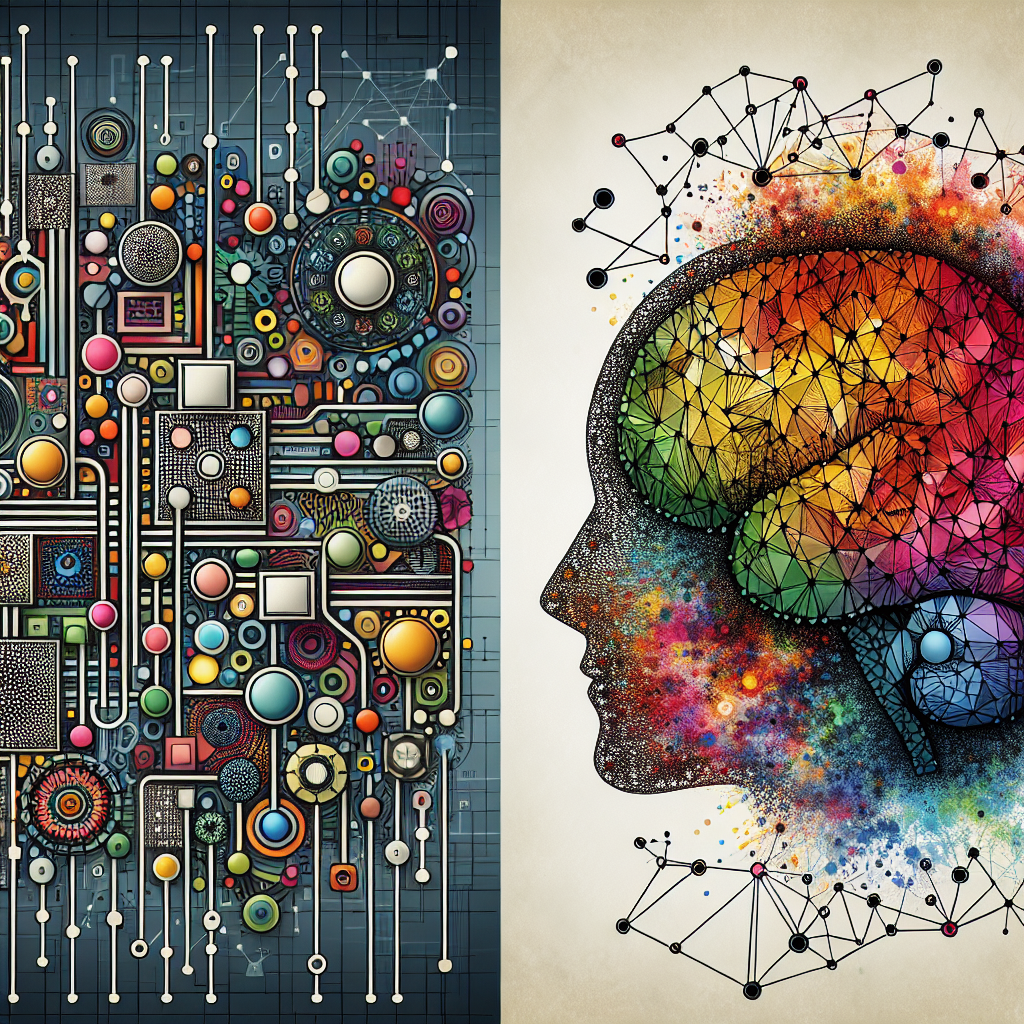AGI vs. Human Intelligence: Examining the Differences and Similarities Between AI and Human Cognition
Artificial General Intelligence (AGI) is a hot topic in the field of artificial intelligence (AI) research. AGI refers to a hypothetical machine intelligence that possesses the ability to understand and learn any intellectual task that a human being can. In contrast, human intelligence is the cognitive ability possessed by humans, which enables them to think, reason, and solve problems.
In this article, we will explore the differences and similarities between AGI and human intelligence, and discuss the implications of AGI on society. We will also address some frequently asked questions about AGI and human intelligence.
Differences Between AGI and Human Intelligence
One of the key differences between AGI and human intelligence is the way in which they are created. AGI is created through the development of algorithms and computer programs that mimic human cognitive processes, such as reasoning, learning, and problem-solving. In contrast, human intelligence is the result of complex biological processes in the human brain.
Another important difference is the scope of intelligence. AGI is designed to be able to perform a wide range of intellectual tasks, from playing chess to driving a car to writing a novel. Human intelligence, on the other hand, is more specialized and is influenced by factors such as genetics, upbringing, and education.
AGI also has the potential to be faster and more efficient than human intelligence. Machines can process information much faster than humans and can perform repetitive tasks without getting tired. However, human intelligence is more adaptable and creative, and can handle complex and ambiguous situations that machines struggle with.
Similarities Between AGI and Human Intelligence
Despite the differences between AGI and human intelligence, there are also some similarities. Both AGI and human intelligence involve processes such as perception, reasoning, learning, memory, and problem-solving. Both are also capable of adapting to new situations and learning from experience.
AGI researchers often draw inspiration from human intelligence in developing algorithms and models for machine learning. For example, neural networks, which are a key component of many AI systems, are inspired by the structure and function of the human brain.
In addition, both AGI and human intelligence have the potential to be creative and innovative. While machines can generate new ideas and solutions based on existing data, humans can draw on their emotions, intuition, and imagination to come up with novel and unexpected solutions to problems.
Implications of AGI on Society
The development of AGI has the potential to revolutionize society in many ways. AGI could lead to advances in fields such as healthcare, transportation, finance, and entertainment. For example, AGI-powered systems could help doctors diagnose and treat diseases more accurately, or help autonomous vehicles navigate safely through traffic.
However, the rise of AGI also raises concerns about job displacement, privacy, security, and ethics. As machines become more intelligent and capable, there is a risk that they could replace human workers in many industries, leading to widespread unemployment. There are also concerns about the misuse of AGI for surveillance, manipulation, and other nefarious purposes.
Frequently Asked Questions about AGI and Human Intelligence
Q: Will AGI surpass human intelligence?
A: It is possible that AGI could surpass human intelligence in certain tasks, such as playing chess or solving complex mathematical problems. However, it is unlikely that AGI will ever fully replicate the breadth and depth of human intelligence.
Q: Will AGI have emotions?
A: AGI is unlikely to have emotions in the same way that humans do, as emotions are a complex interplay of biological, psychological, and social factors. However, AGI could be programmed to simulate emotions for specific purposes, such as customer service or therapy.
Q: Will AGI be conscious?
A: The question of whether AGI will be conscious is a topic of much debate among scientists and philosophers. Some argue that consciousness is a uniquely human phenomenon that cannot be replicated by machines, while others believe that AGI could potentially become conscious if it reaches a certain level of complexity.
Q: How will AGI impact jobs?
A: The development of AGI is expected to have a significant impact on the job market, as machines become increasingly capable of performing tasks that were previously done by humans. Some jobs may be eliminated or automated, while new jobs may be created in fields such as AI research, data science, and robotics.
In conclusion, the development of AGI has the potential to transform society in profound ways, by revolutionizing industries, creating new opportunities, and raising important ethical and social questions. While AGI may never fully replicate the complexity and richness of human intelligence, it has the potential to enhance and augment human capabilities in ways that were previously unimaginable. As we continue to explore the possibilities and limitations of AGI, it is important to consider the ethical, legal, and societal implications of this groundbreaking technology.

